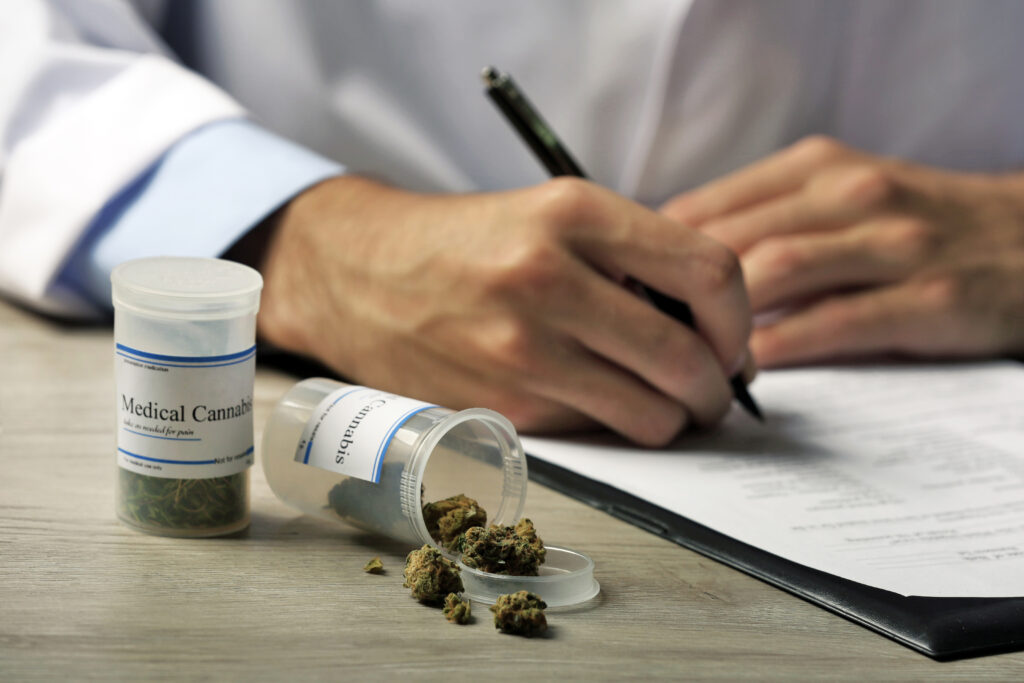Upon this publication, 36 states and four territories allow qualifying patients to use medical marijuana. The drug’s increasing availability paired with decreasing stigma may mean more seniors will consider talking to their doctors about its benefits. After all, research shows that medical marijuana can help people with Alzheimer’s disease, cancer, or severe, chronic pain better manage their symptoms.
The first step to obtaining medical marijuana, however, is applying for a medical marijuana card. Although the process may seem daunting, it’s fairly straightforward. The following steps will help seniors learn more about the medical marijuana certification process.

1. Do some research
If you don’t know a lot about medical marijuana, it’s time to learn the basics. The following are a few medical marijuana research topics to get you started:
Is medical marijuana legal in my state? The National Conference of State Legislatures features a map where medical marijuana is legal.
What form does marijuana come in? The Mayo Clinic’s Consumer Health Medical Marijuana section reported that medical marijuana comes in many forms, including:
- Oil
- Pill
- Topicals
- Oral solutions
- Dried buds and leaves
What does medical marijuana help treat? The Mayo Clinic lists many common “qualifying conditions” that include (but not limited to):
- Alzheimer’s disease
- ALS
- HIV/AIDS
- Cancer
- Glaucoma
- Severe nausea
- Severe and chronic pain
2. Consider your state’s medical marijuana card qualifying conditions
Obtaining medical marijuana and qualifying for a card isn’t like going to a doctor for a prescription.
Dr. Puja Aggarwal, MD, board-certified neurologist and epileptologist, said most states where medical marijuana is legal have a state registry or website where potential patients can find
“approved” medical conditions. If you have a qualifying medical condition, you can start the registration process on your state’s registry website.

3. Find a medical marijuana doctor
Take note that not all doctors can help seniors obtain a card. “Most states require additional training such as Continuing Medical Education, courses or lectures to be able to certify patients for medical marijuana,” Dr. Aggarwal said. Most state registries list names of medical marijuana physicians and providers.
After locating a medical marijuana doctor, your loved one needs to prepare for their doctor’s visit. You can start by requesting their medical records from their primary care doctor to support their qualifying medical condition.
Seniors will most likely need to see their medical marijuana provider in person. However, some states, such as Missouri, allow for certification via telehealth appointments.
Dr. Erik Smith, MD, a medical expert at Veriheal – a health care technology company committed to cannabis education – said physician consultations typically take 10 minutes, when the doctor will look over a senior’s medical history and medications. “Once the patient is deemed eligible, the senior is then registered into the state’s medical marijuana/cannabis program,” Smith said.
Depending on the state, the registration process requires an application – which a medical marijuana doctor must certify – as well as the submission of required documents and a fee. Cards can typically last one to two years depending on the location where it was acquired.
4. Understand dosing and medication interactions, and visit a dispensary
Once a senior gets a card, help them research the various types of marijuana that could help their qualifying condition, along with possible marijuana side effects and potential drug interactions (if the senior is on additional medications).
“Seniors should discuss with their physician about what type and strain would be best for them and what dose is best,” Dr. Aggarwal said. “Some seniors may like to vape while others may not. There may be some trial and error to figure out what form, strain and dose work best for seniors.”
Dr. Aggarwal noted that medical professionals (a pharmacist, physician, nurse practitioner or physician assistant) work at marijuana dispensaries in some states. These professionals also can help field questions and help a senior with their marijuana purchase and dosing. Seniors can easily find local dispensaries on their state’s medical marijuana registry.
“The main benefit to using state-supported dispensary products is using formulations that will allow us to go low and slow for each individual patient,” Smith explained. “All patients are different, and their response to cannabis is unique to them.”
Dr. Smith added that some seniors might benefit from a designated caregiver, a person who can help a senior navigate dispensaries and beyond. Most state programs offer caregiver cards that allow the caregiver to assist at dispensaries, facilitate marijuana plant cultivation, and help with other medical marijuana needs.

Follow up
Although obtaining a medical marijuana card is different in each state, the basics of getting certified are similar wherever you live. You can quickly start the process by finding your state’s online registry today. The duration of a medical marijuana card’s validity is dependent on close monitoring by a doctor of the overall effects cannabis may be having on your senior and is subject to change according to the doctor’s recommendation.

